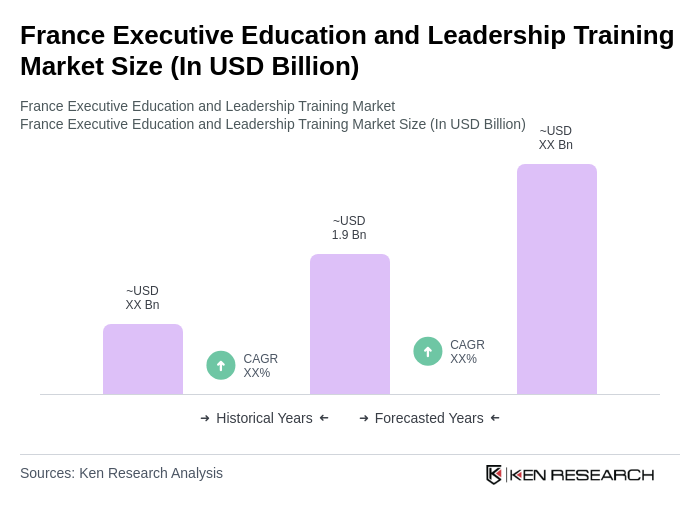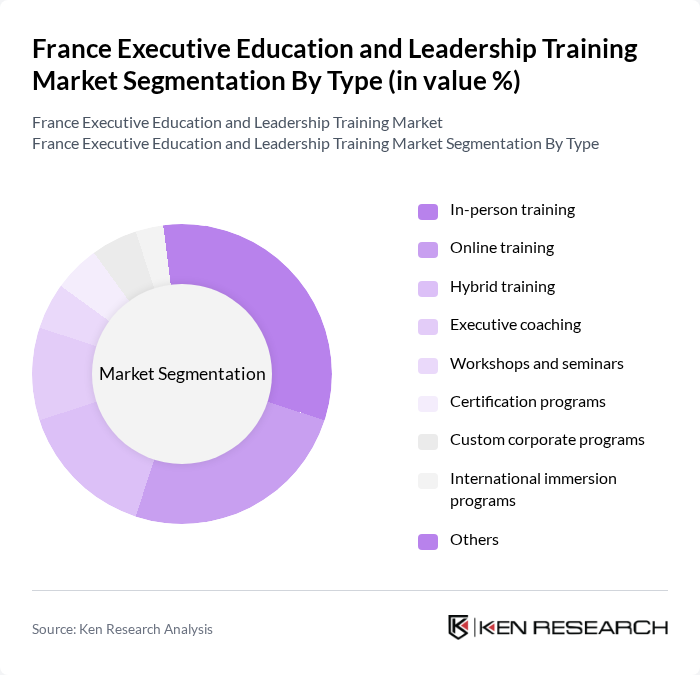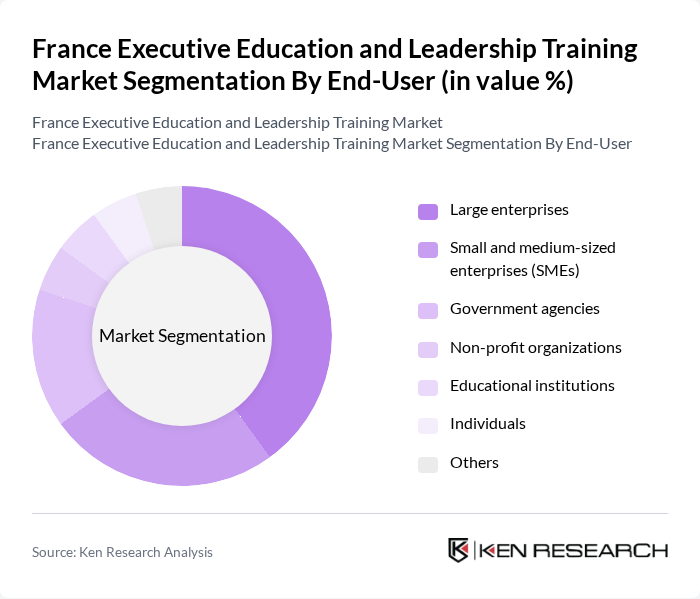Region:Europe
Author(s):Shubham
Product Code:KRAA3626
Pages:98
Published On:September 2025

By Type:The market is segmented into various types of training programs, including in-person training, online training, hybrid training, executive coaching, workshops and seminars, certification programs, custom corporate programs, international immersion programs, and others. Each of these sub-segments caters to different learning preferences and organizational needs. In recent years, hybrid and online modalities have gained traction, reflecting the demand for flexible, scalable, and technology-enabled executive education solutions .

By End-User:The end-user segmentation includes large enterprises, small and medium-sized enterprises (SMEs), government agencies, non-profit organizations, educational institutions, individuals, and others. Each segment has unique training requirements and budget considerations, influencing their choice of executive education programs. Large enterprises typically invest in custom and hybrid programs, while SMEs and individuals increasingly leverage online and modular offerings for cost-effectiveness and flexibility .

The France Executive Education and Leadership Training Market is characterized by a dynamic mix of regional and international players. Leading participants such as HEC Paris, INSEAD, ESCP Business School, emlyon business school, Grenoble Ecole de Management, Université Paris-Dauphine-PSL, IAE Aix-Marseille Graduate School of Management, SKEMA Business School, Audencia Business School, NEOMA Business School, TBS Education (Toulouse Business School), KEDGE Business School, Université Paris 1 Panthéon-Sorbonne, Université Paris 2 Panthéon-Assas, Université de Strasbourg, ESSEC Business School, Cegos Group, CentraleSupélec Exed, Sciences Po Executive Education, CNAM (Conservatoire national des arts et métiers) contribute to innovation, geographic expansion, and service delivery in this space.
The future of the executive education and leadership training market in France appears promising, driven by technological advancements and evolving corporate needs. As organizations increasingly prioritize leadership development, the integration of innovative training methods, such as experiential learning and AI-driven solutions, will become more prevalent. Additionally, the focus on soft skills and emotional intelligence will shape training programs, ensuring that leaders are equipped to navigate complex interpersonal dynamics in the workplace.
| Segment | Sub-Segments |
|---|---|
| By Type | In-person training Online training Hybrid training Executive coaching Workshops and seminars Certification programs Custom corporate programs International immersion programs Others |
| By End-User | Large enterprises Small and medium-sized enterprises (SMEs) Government agencies Non-profit organizations Educational institutions Individuals Others |
| By Delivery Mode | Face-to-face Virtual classrooms Blended learning Self-paced online courses Mobile learning Others |
| By Duration | Short-term programs (less than 1 month) Medium-term programs (1-6 months) Long-term programs (6 months - 1 year) Executive MBA programs Modular programs Others |
| By Industry Focus | Technology Finance Healthcare Manufacturing Retail Public sector Energy Others |
| By Certification Type | Professional certifications Academic certifications Industry-specific certifications Micro-credentials Others |
| By Pricing Tier | Premium Mid-range Budget Others |
| Scope Item/Segment | Sample Size | Target Respondent Profiles |
|---|---|---|
| Corporate Executive Training Programs | 120 | HR Managers, Training Coordinators |
| Leadership Development Workshops | 90 | Program Participants, Alumni |
| Online Executive Education Courses | 60 | eLearning Managers, IT Directors |
| Industry-Specific Leadership Training | 50 | Sector Leaders, Training Consultants |
| Government-Funded Leadership Initiatives | 40 | Policy Makers, Educational Administrators |
The France Executive Education and Leadership Training Market is valued at approximately USD 1.9 billion, reflecting a growing demand for leadership skills and effective training programs in a competitive business environment.